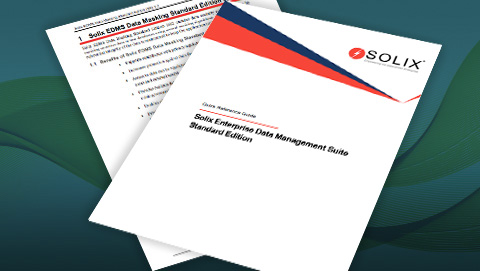CPRA
What is CPRA?
The California Privacy Rights Act (CPRA) is the stricter sibling of the CCPA. It expands consumer rights regarding their data under the CCPA. The CPRA expands upon the California Consumer Privacy Act (CCPA) with enhanced rights for consumers, heightened transparency requirements, and the establishment of a dedicated enforcement agency, the California Privacy Protection Agency (CPPA). It essentially strengthens Californians’ data privacy protections.
Overview of CPRA
- Law: California Privacy Rights Act
- Region: California
- Signed into Law: 03-11-2020
- Effective Date: 01-07-2023
- Industry: All industries that do business in California
Personal Data Under The CPRA
The CPRA inherits the CCPA’s definition of personal information as any information that identifies, relates to, describes, is capable of being associated with, or could reasonably be linked with a particular consumer or household.
The CPRA introduces a new category – “sensitive personal information.” This includes data revealing a Californian’s Social Security Number, precise geolocation, race, religion, sexual orientation, health data, etc.
Key Components Of CPRA
- Expanded consumer rights: CPRA builds upon the CCPA by broadening existing rights (like access and deletion) and introducing new ones, such as
- Right to correction
- Right of access to specific information
- Right to know the length of data retention
- Right to opt-out of sale and sharing of personal data
- Right to limit the use of sensitive information for specific purposes
- Stricter enforcement: The act establishes the California Privacy Protection Agency (CPPA) with the authority to investigate violations and enforce penalties, including fines of up to $7,500 per violation for intentional violations involving children’s data.
Data Protection Principle
The California Privacy Rights Act goes beyond simply granting Californians rights over their data. It establishes core data protection principles that all businesses collecting personal information from California residents must adhere to. The below-mentioned principles aim to build trust and ensure responsible data handling:
- Transparency
- Accountability
- Purpose limitation
- Data minimization
- Data security and privacy
- Non-discrimination against CPRA rights
- Enforcement of California Privacy Protection Agency (CPPA)
Rights Under CPRA
- Right to Know: Access collected personal information.
- Right to Delete: Request erasure of personal data.
- Right to Correct: Instruct businesses to correct inaccurate information.
- Right to Opt-Out of Sharing: Prevent businesses from selling or sharing personal information.
- Right to Limit: Consumers can limit using sensitive information for specific purposes, like advertising.
Who Needs To Comply?
The California Privacy Rights Act applies to a broader range of businesses than most data privacy laws, making it crucial for organizations to understand their compliance obligations. Here’s a breakdown of who needs to comply with the act. For-profit businesses doing business in California that meet at least one of the following thresholds
- Annual gross revenue exceeding $25 million.
- Engage in purchasing, receiving, or selling personal information from 50,000 or more California residents, households, or devices.
- Earn more than 50% of their annual revenue from selling or sharing consumers’ personal information (regardless of revenue size).
- If an entity uses third-party vendors that handle Californian data, ensure the same to comply with the act.
Exceptions
- Non-profit organizations
- Businesses with less than $25 million in annual revenue and less than 100,000 California residents’ data
- Individuals and households
Regulatory Penalties
The California Privacy Rights Act comes with teeth, and failing to comply can bite your business financially. Below are outlines of potential fines:
- Intentional Violations: Up to $7,500 per violation for each Californian affected.
- Unintentional Violations: Up to $2,500 per violation for each Californian affected.
- Children’s Data: Violations concerning individuals under 16 incur escalated fines.
Compliance Authority For CPRA
The California Privacy Protection Agency (CPPA) enforces CPRA and ensures compliance with its provisions. The CPPA has the authority to investigate complaints, conduct audits, and impose fines and penalties for violations of CPRA.
How to avoid CCPA Fines?
- Adhere to data subject rights
- Implement robust data inventory
- Prioritize strong security practices
- Draft a clear data governance policy
- Implement robust data access controls
In conclusion, the California Privacy Rights Act (CPRA) marks a crucial advancement in data privacy, granting Californians unprecedented authority over their data. While adhering to its regulations may seem daunting, understanding the core principles and key requirements is crucial for any business operating in the state. By implementing robust data governance practices, leveraging data masking solutions, and staying informed about evolving compliance expectations, you can navigate the CPRA landscape with confidence.
FAQ
What is the California Privacy Rights Act (CPRA)?
CPRA is a privacy law enhancing the CCPA, providing additional consumer rights, and stricter regulations, and establishing the California Privacy Protection Agency.
When does CPRA come into effect?
January 1, 2023.
What are the new updates on the consumer rights under the CPRA?
CPRA grants consumers rights such as the right to correct inaccurate information, limit data sharing, and restrict sensitive data processing.
Is CPRA applicable to all businesses?
CPRA applies to businesses that collect personal information from California residents and meet specific revenue or data processing thresholds.





